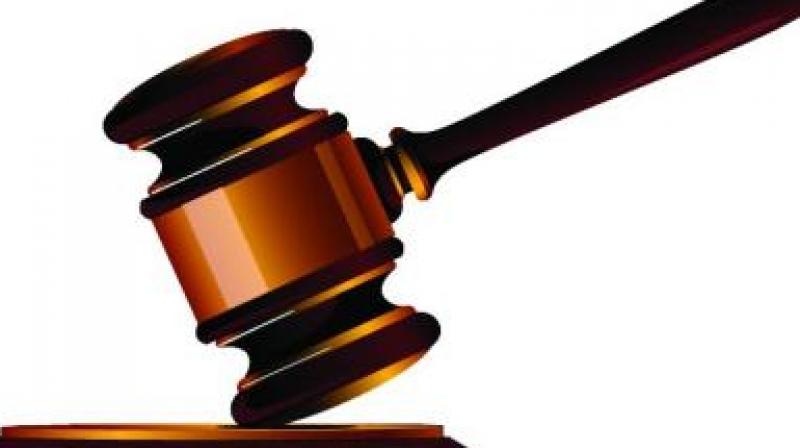Justice for all: Processions: Permission is norm, rejection exception

With protests against the Citizenship Amendment Act intensifying, every fortnight, a template post on the Chennai city police Facebook page is put up. It is the invocation of Section 41(2) of the City Police Act,1888, which empowers the Commissioner of Police to "by order in writing, prohibit any assembly, meeting or procession if he considers such prohibition to be necessary for the preservation of the public peace or public safety."
However, this power is not unbridled to take on the form of a complete ban. Under Section 41(3)(a), a person intending to take out a procession, can apply to the commissioner for permission, even if a prohibitory order is in force, "not less than five days prior to the date, on which the assembly or meeting is to be convened or the procession is to be formed."
With guaranteed fundamental rights to freedom of expression and the freedom to assemble peaceably and without arms under Articles 19(1)(a) and 19(1)(b) respectively of the Constitution of India at play, as observed by the Supreme Court in Babulal Parate Vs State of Maharastra (1961), it is imperative that a careful distinction is made between reasonable regulation and arbitrary exclusion. Courts have, in the past, cautioned the authorities that broad prophylactic rules impinging upon free expression and assembly are suspect. Precision of the regulation must be the touchstone.
Courts have held that the scope of reasonable restrictions, spelt out in Article 19(2) are wider if they relate to Article 19(1)(a) and should have a nexus with the interests of the sovereignty and integrity of India, friendly relations with foreign States, public order, decency, morality, contempt of court, defamation or incitement to offences. As far as Article 19(1)(b) is concerned, they should have nexus only with 2 things, namely, the interests of the sovereignty and integrity of India or public order. I have always believed that a bigger threat to public order lies in stifling dissent leading to pent up anger. Either engage with protestors or let them vent their grievances, provided the method is peaceful. There lies the rub and the challenge for the police who may be damned if they permit a rally and damned if they don't!
A Constitution Bench of the Supreme Court in Himat Lal K Shah Vs Commissioner of Police,Ahmedabad (1972) had put the issue in perspective. "Public meetings in open spaces and public streets form part of the tradition of our national life. The state and the local authority have a virtual monopoly of every open space at which an outdoor meeting can be held. If, therefore, the state or municipality can constitutionally close both its streets and its parks entirely to public meetings, the practical result would be that it would be impossible to hold any open air meetings in any large city. The real problem is that of reconciling the city's function of providing for the exigencies of traffic in its streets and for the recreation of the public in its parks with its other obligations, of providing adequate places for public discussion in order to safeguard the guaranteed right of public assembly."
The apex court in Himat Lal went on to point out that "the basic assumption in a democratic polity is that government shall be based on the consent of the governed. But this consent shall be free and grounded on adequate information and discussion. Public streets are the 'natural' places for expression of opinion and dissemination of ideas." However, the population and traffic constraints today are far greater than what existed 48 years ago when this judgment was pronounced.
Just like the dictum that bail is the norm and jail the exception, the Madras high court in Durai Sankar Vs Director General of Police (2014) with due reference to Supreme Court decisions, had held that "the grant of permission for convening an assembly or meeting and promoting a procession, is the rule and the refusal of permission is the exception." The principle of natural justice must be followed while refusing permission with the applicant being given a hearing, as mandated by sub section (4) of the statute. Disobedience of the order or contravention of any of the conditions imposed could, under sub section (6), entail in a month's imprisonment and-or a fine, possibly read with penal provisions and added punishment. There are clear exemptions laid down in sub section (8). The order would not apply to any "assembly or meeting of a purely religious character held in a recognised place of worship, any assembly or meeting gathered together purely for the purpose of taking part in sports, any procession on the occasion of any wedding, funeral or similar domestic occurrence, or of any religious ceremony, or to any public meeting held under any statutory or other express legal authority."
To target the police for their stance during these circumstances would be barking up the wrong tree. The men in khakhi take orders from the political establishment.Which is why we have seen the absence of an even handed approach in some cases. A rally in support of the CAA reportedly leads to no cases booked but those who opposed it have been slapped with criminal charges.
The words of the Supreme Court in the landmark S.Rangarajan Vs P. Jagjivan Ram (1989) case are instructive. "Restrictions must be justified on the anvil of necessity and not the quick sand of convenience or expediency. Open criticism of Government policies and operations is not a ground for restricting expression. We must practice tolerance of the views of others."
Inconvenience to the common man during a protest may be inevitable. But the protestors must make an earnest attempt to minimise it. And stay alert for possible infiltrators. There is an old college hostel saying: "5 minutes depends on which side of the bathroom door you are!"
(The writer is an advocate at the Madras high court, columnist & author)

